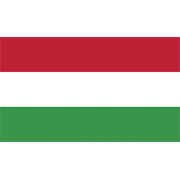General information
Firstly, let us remind you that in Hungarian fiscalization, the existing VAT rates are: The general VAT rate of 27%. And two reduced rates of 18% and 5%. The reduced VAT rate of 18% ( marked as B ) is applicable for some products (e.g. certain milk, certain dairy products, products made from cereals, flour, and starch).
According to the Hungarian Parliament Bill No. T/17515 the following are the products that made the list for VAT reduction:
- Salt
- Cereal groats and meals
- Milk and milk products
- Bread without added honey, eggs, cheese
- Natural honey
- Fresh vegetables, dried leguminous vegetables
- Fresh fruits, dried fruits
- Basic spices
These changes that are currently in consideration are a way to take the burden off from the citizens and are being considered by the Hungarian National Assembly according to Article 6 of Law on Value Added Tax from 2007. If applied, they will be in force from January 1st, 2022 without a defined ending deadline for now.
Other news from Hungary
Hungary enacts the long-awaited official legislation on e-cash register requirements!
 Hungary
Author: Tara Nedeljković
Hungary
Author: Tara Nedeljković
Hungary has officially enacted the long-awaited 8/2025 (III. 31.) NGM Decree, also known as the EPG Decree, establishing the legal framework for electronic cash registers (e-cash registers) and e-receipts. Starting July 1, 2025, taxpayers may voluntarily adopt certified hardware-based e-cash registers, with mandatory transition for relevant sectors by July 1, 2028. The National Tax and Customs Adm... Read more



TLv6 Implementation Marks Significant Shift in EU’s Trust List Format
A new EU Trust List format, TLv6, will officially replace TLv5 in May 2025 as part of the updated eIDAS Regulation (EU 2024/1183). It introduces key technical changes like a new URI field, updated signature format, and optional phone number support. Organizations must update their systems to avoid signature validation failures and service disruptions, as TLv5 will no longer be valid once TLv6 take... Read more



VIDA regulation adopted—what does that mean for business?
The EU adopted the VAT in the Digital Age (ViDA) package on March 11, 2025, introducing major changes to the VAT system starting January 1, 2027. Key reforms include mandatory digital VAT reporting by 2030, new VAT collection rules for online platforms, and expanded One-Stop Shop (OSS) registration to simplify cross-border compliance. Additional measures, such as mandatory e-invoicing, phasing out... Read more



New document was uploaded: Decree on the distribution and operation of e-cash registers, as well as on the requirements for the issuance of e-cash registers and e-receipts (HU)
 Hungary
Author: Kristina Dosen
Hungary
Author: Kristina Dosen
The Hungarian government has introduced a new decree regulating e-cash registers and e-receipts to enhance digitalization and tax compliance. The decree comes into effect on March 1, 2025, with full implementation expected by 2028. Read more



New document was uploaded: Decree on the distribution and operation of e-cash registers, as well as on the requirements for the issuance of e-cash registers and e-receipts (EN)
 Hungary
Author: Kristina Dosen
Hungary
Author: Kristina Dosen
The Hungarian government has introduced a new decree regulating e-cash registers and e-receipts to enhance digitalization and tax compliance. The decree comes into effect on March 1, 2025, with full implementation expected by 2028. Read more



A new draft decree defining the requirements of the new e-cash register system is published in Hungary.
 Hungary
Author: Tara Nedeljković
Hungary
Author: Tara Nedeljković
Hungary has published a draft ministerial decree outlining the requirements for a new e-cash register system, set to replace the current online cash register framework. While businesses can voluntarily adopt e-cash registers, mandatory use will begin in the second half of 2026, with a full transition expected by 2028. Read more



Slovenia: EU Targets Unsafe E-Commerce Imports with New Measures
The European Commission is tightening regulations on e-commerce imports to address the surge of unsafe and counterfeit goods, particularly from China, by reforming customs rules and increasing product safety checks. Key measures include removing the duty exemption for low-value parcels, introducing a potential customs fee, establishing priority control areas, and launching an EU-wide product safet... Read more


